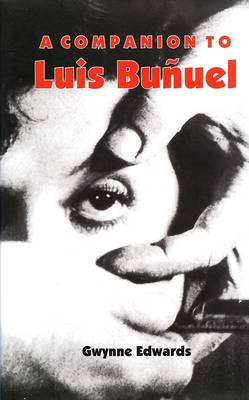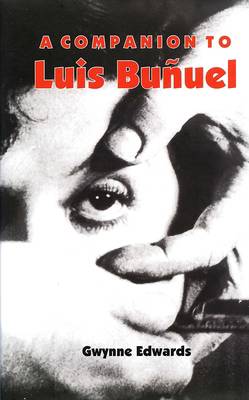
- Afhalen na 1 uur in een winkel met voorraad
- Gratis thuislevering in België vanaf € 30
- Ruim aanbod met 7 miljoen producten
- Afhalen na 1 uur in een winkel met voorraad
- Gratis thuislevering in België vanaf € 30
- Ruim aanbod met 7 miljoen producten
Zoeken
€ 48,45
+ 96 punten
Omschrijving
Luis Buñuel [1900-1983] was one of the truly great film-makers of the twentieth century. Shaped by a repressive Jesuit education and a bourgeois family background, he reacted against both, escaped to Paris, and was soon embraced by André Breton's official surrealist group. His early films are his most aggressive and shocking, the slicing of the eyeball in 'Un Chien andalou' [1929] one of the most memorable episodes in the history of cinema. 'The Forgotten Ones' [1950] and 'He' [1952], made in Mexico, were followed, from 1960, in Spain and France, by the films for which he is best known: 'Viridiana' [1961], 'Belle de jour' [1966], 'Tristana' [1970], 'The Discreet Charm of the Bourgeoisie' [1972], and 'That Obscure Object of Desire' [1977]. Gwynne Edwards analyses the films in the context of Buñuel's personal obsessions - sex, bourgeois values, and religion - suggesting that the film-maker experienced a degree of sexual inhibition surprising in a surrealist. GWYNNE EDWARDS is Professor of Spanish at the University of Wales, Aberystwyth.
Specificaties
Betrokkenen
- Auteur(s):
- Uitgeverij:
Inhoud
- Aantal bladzijden:
- 186
- Taal:
- Engels
- Reeks:
- Reeksnummer:
- nr. 210
Eigenschappen
- Productcode (EAN):
- 9781855662056
- Verschijningsdatum:
- 18/03/2010
- Uitvoering:
- Paperback
- Formaat:
- Trade paperback (VS)
- Afmetingen:
- 156 mm x 234 mm
- Gewicht:
- 272 g

Alleen bij Standaard Boekhandel
+ 96 punten op je klantenkaart van Standaard Boekhandel
Beoordelingen
We publiceren alleen reviews die voldoen aan de voorwaarden voor reviews. Bekijk onze voorwaarden voor reviews.








